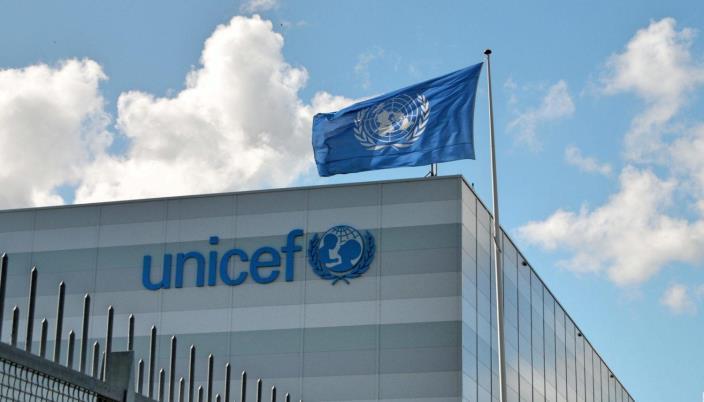UNICEF targets 545,000 under-one registrations in Lagos, calls for community-led action
The United Nations Children’s Fund (UNICEF) has set a target to register 545,000 children under one year in Lagos State before the end of 2025, as part of a nationwide campaign to ensure that no Nigerian child is left without a legal identity.
Speaking at the Birth Registration Multi-Sector Dialogue, in Lagos, on Monday, Celine Lafoucriere, chief of UNICEF Lagos field office, emphasized that birth registration remains the first line of protection for every child, without which children cannot access essential services such as healthcare, education, and social protection.
Read also: UNICEF, Borno train 1,033 Boko Haram survivors in vocational skills
“Without registration, children are invisible. They cannot access healthcare, education, or social services. Lagos State has made impressive progress with 94 percent of children under five already registered, but we must ensure that no child, especially in hard-to-reach and low-income communities, is left behind,” Lafoucriere said.
According to Lafoucriere, Lagos is one of 15 priority states in UNICEF’s 2025 plan to register 3.69 million children nationwide. She revealed that the state received the highest allocation of over six million birth certificates from the National Population Commission (NPC) last month, an indication of the trust placed in Lagos’ registration systems and its capacity to deliver results.
“The foundation has been laid. Training has been completed across all 20 local government areas, supplies including tablets have been distributed, and registration points are active. Lagos is ready, but success depends on everyone in this room,” she said.
Lafoucriere urged ministries, traditional institutions, civil society, and the media to drive awareness and integration of birth registration into everyday services, stressing that collaboration among health, education, and social development sectors would be crucial to achieving the 2025 goal.
“The Ministry of Health must integrate registration into immunization and maternal health services. Education authorities must ensure that birth certificates are required for school enrollment. Traditional and community leaders must champion registration as a civic duty, and the media must keep the message alive,” she said.
She announced that the dialogue would produce a Lagos State Birth Registration Action Plan, a roadmap to strengthen community participation, drive demand at the grassroots, and identify pilot programs linking registration with immunization and child welfare services.
“Today, we are moving beyond talk. We want concrete commitments, not just plans, that will be captured in a communique and implemented across sectors. The resources are here; the will is in this room,” Lafoucriere added.
This work belongs to all of us. Let us leave here today with commitments, not just intentions, so that every child in Lagos can be counted, protected, and given the identity they deserve,” Lafoucriere appealed.
Olayinka Oladunjoye, federal commissioner of the National Population Commission, Lagos, called on parents, community leaders, and local councils to intensify mobilisation efforts.
“Without registration, there is no identity. And without identity, we can’t plan for them. Accurate data helps government determine how many schools, hospitals, or social facilities are needed in each community. That’s why birth registration is not just an administrative process, it is about proper planning for our children’s future,” she said.
Oladunjoye applauded UNICEF, the Association of Local Governments of Nigeria (ALGON), and civil society groups for their consistent collaboration, describing the initiative as a shared responsibility. “All our children must be registered and given certificates. We appreciate UNICEF for being a strong partner and for always standing by us,” she added.
Despite Lagos’ progress, stakeholders acknowledged that several barriers continue to hinder universal registration.
Mrs. Olajumoke Otitoloju, welfare officer of the Child Protection Network (CPN) and project coordinator at Yanuora Children’s Care Foundation, said many families in informal settlements still lack awareness or face exploitation from unofficial agents. “Birth registration is the first legal proof of a child’s existence, yet millions of children in low-income areas remain unregistered. Some parents are charged illegally or issued fake certificates, which discourages genuine registration,” she noted.
Read also: Two-thirds of Nigeria children live in multidimensional poverty UNICEF
Otitoloju proposed practical solutions, including setting up birth registration desks in primary schools and requiring certificates during school enrollment and naming ceremonies. “If schools and religious institutions request birth certificates, parents will see it as part of civic responsibility, not an option. It is not just about giving a name, it is about giving an identity,” she said.
The dialogue, themed “Every Child Counts: Accelerating Birth Registration in Lagos State,” brought together key officials from the Ministries of Health, Education, Youth and Social Development, ALGON, civil society, and the media. Participants agreed to co-create a State Action Plan to improve awareness, integrate registration into health and education systems, and track progress toward universal coverage by year-end.

